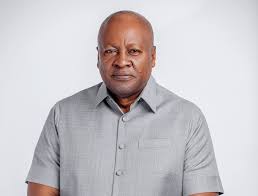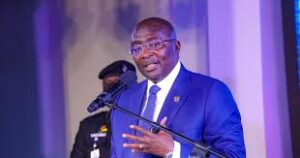President Mahama Confirms He Will Provide Allowances for Assembly Members

In his recent address to Parliament, President John Dramani Mahama reaffirmed his commitment to improving local governance by implementing policies that support the vital role of Assemblymen and women in Ghana’s decentralised system. He reiterated his promise to provide modest allowances to these officials, a pledge he made during his election campaign. He acknowledged that decentralisation is at the core of Ghana’s governance framework, yet key actors in this process, such as Assemblymen and women, have often been neglected and inadequately compensated for their contributions. His statement was made during his first State of the Nation Address (SONA), where he emphasized that despite the critical function of local governance in the country, many of the officials tasked with managing local affairs have faced challenges due to a lack of financial support.
In addition to this, President Mahama also reasserted his commitment to ensuring that Metropolitan, Municipal, and District Chief Executives (MMDCEs) are elected on a non-partisan basis. This promise aligns with the policy stance of his party, the National Democratic Congress (NDC), which advocates for the election of MMDCEs to enhance democratic local governance. By making this shift, Mahama envisions a more neutral and independent local government structure, one where local leaders can focus more on the development of their communities rather than political affiliations. He explained that this non-partisan approach would allow local leadership to be more responsive to the needs of the people, fostering a more effective and inclusive local governance system.
Mahama’s renewed pledge to pay allowances to Assembly members is also significant in the context of Ghana’s broader decentralisation agenda. In December 2023, during the district-level elections in the Savannah Region, Mahama made a similar statement. Speaking to the media after casting his vote in Bole, he acknowledged the pivotal role of Assembly members in the governance structure. These officials, often working at the grassroots level, are instrumental in decision-making processes that directly affect local communities. Despite their crucial responsibilities, they have long been overlooked in terms of compensation and support. Mahama, understanding the importance of these roles, promised that his administration would pay Assembly members allowances to enable them to carry out their duties effectively. He noted that financial support for local officials is necessary for the smooth operation of local governance and would encourage greater participation in public service at the district level.
The President also stressed that his government would work towards further strengthening decentralisation in Ghana. He stated that the decentralisation process has been slow and incomplete, and a full transition of power to local governments is crucial for the country’s long-term development. He reiterated that if elected, his administration would focus on expanding the role of local government institutions, ensuring they have the necessary resources and autonomy to make decisions that best serve their communities. As part of his commitment to decentralisation, Mahama proposed increasing the District Assembly Common Fund from five percent to seven percent, thereby providing more financial support to local governments. This increase would enable local authorities to better address the needs of their communities and implement more impactful development projects.
Mahama’s vision for decentralisation goes beyond financial support. He believes that for Ghana to truly progress, power must be transferred from the central government to the local level. He argued that decentralisation is key to improving governance, increasing accountability, and promoting sustainable development. He further stated that decentralisation should not just be a policy but a practical reality, where local governments are empowered with the resources, authority, and autonomy to drive development in their respective areas. According to Mahama, until decentralisation is fully implemented, Ghana will not achieve its full potential.
Through these statements, President Mahama demonstrated a clear understanding of the importance of local governance in the overall development of Ghana. His plan to empower Assembly members, increase financial resources for local governments, and strengthen the decentralisation process reflects a comprehensive approach to improving local governance. His commitment to a non-partisan election system for MMDCEs further underscores his belief in creating a more inclusive and effective governance structure. If implemented, these policies could help ensure that local governments are better equipped to address the diverse needs of Ghana’s population and foster more sustainable development across the country.






